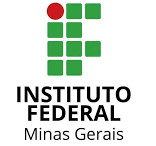RESUMO | ABSTRACT
RESUMO: O presente estudo tem como intuito analisar a inovação em sala de aula com base nas novas práticas através de uma experiência realizada no curso Técnico em Administração integrado ao nível médio do IFMA, Campus Grajaú (MA). O estudo situa sua contribuição acerca da urgência da transformação do ambiente escolar com ferramentas que ampliem os significados dos saberes transmitidos. Porém, diante do desafio de atrair a atenção dos alunos, como as abordagens contemporâneas podem se adequar ao ensino e aprendizagem aos mesmos elevando a sua formação? Para desvendar essa questão, primeiramente, a metodologia reuniu a pesquisa exploratória e bibliográfica com a exposição das alternativas de educação mais atuais. A partir da preferência do público, foram selecionadas as quatro técnicas de ensino (Gamificação, Spin-Off Acadêmico, ABProj e Metodologia Ativa), sendo aprofundados os estudos para implementação. Dessa forma, as abordagens qualitativas e quantitativa sobre as respostas de 35 (trinta e cinco) discentes foram sistematizadas por meio da pesquisa participante e da observação direta, ao final, cruzadas pela aplicação do questionário. Dentre os principais achados, obteve-se a grande receptividade dos procedimentos aplicados, notadamente direcionada à gamificação e à execução de projetos em grupo favoráveis à exploração de ideias e oportunidades.
ABSTRACT: The aim of this study is to analyze classroom innovation based on new practices through an experience in the Technical Course in Administration integrated at the High School of IFMA, Campus Grajaú (MA). The study situates its contribution about the urgency of transforming the school environment with tools that amplify the meanings of the transmitted knowledge. However, facing the challenge of attracting students’ attention, how can contemporary approaches be adapted to their teaching and learning by raising their training? To solve this question, first, the methodology brought together exploratory and bibliographic research with the exposition of the most current education alternatives. Based on the public’s preference, the four teaching techniques (Gamification, Academic Spin-Off, ABProj and Active Methodology) were selected, being deepened the studies for implementation. Thus, the qualitative and quantitative approaches on the answers of 35 (thirty-five) students were systematized through the participant research and the direct observation, in the end, crossed by the application of the questionnaire. Among the main findings, it was obtained the great receptivity of the applied procedures, mainly directed to gamification and the execution of group projects favorable to the exploration of ideas and opportunities.
